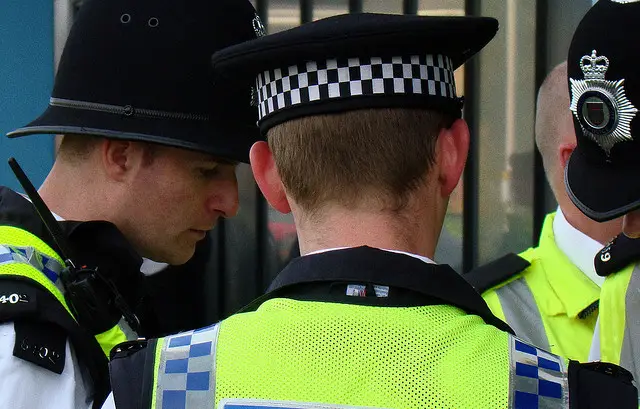This in from the police, in their own words. Ed
The HMIC report provides an independent view that the force is delivering a good service for less than the average national cost to the taxpayer. The Constabulary has done this while protecting neighbourhood policing, having a strong victim focus and protecting frontline policing.
This has been made possible by reducing back office functions, innovative approaches to partnership work with local authorities and Hampshire’s Fire and Rescue Service, and plans to cut demand through a new Resolution Centre.
Further cuts could affect frontline services
Commenting on the report, Chief Constable Andy Marsh said:
“There is good news for people in this independent report. It shows that our communities are getting a good service, and they are getting it for less money than elsewhere in the country. It has been possible to do these two things together because we have been ahead of the game in making tough decisions to reform our back office functions and policing model.
“Only by making cuts this way have we been able to keep investing in neighbourhood policing. As today’s report states, this is in contrast to national concerns about gradually eroding this key area of policing.
“The report does, however, underline a clear note of concern. We are already extremely efficient. We have already done the innovative things that other forces are now looking to do. If budgets are cut further beyond 2016 we will be hit disproportionately hard and we will have no other option but to further reduce our frontline services. This can only impact our ability to serve the victims of crime.”
Warning about gradual erosion of neighbourhood policing
Simon Hayes, Police and Crime Commissioner for Hampshire, commented:
“It is reassuring the HMIC Crime Inspection Report highlights areas where Hampshire Constabulary is performing well. In particular, it is interesting that the report warns about the gradual erosion of neighbourhood policing. Through my Police and Crime Plan and Estates Strategy, I challenged the Constabulary to ensure that policing is placed squarely at the heart of neighbourhoods, which has been met through their Operational Change Programme. It is also reassuring that the report acknowledges a continued focus by Hampshire Constabulary in putting victims at the centre of policing, which is also a priority within my Police and Crime Plan.
“This report does highlight the detrimental impact that further Government cuts to policing will have on the Constabulary’s ability to maintain and improve their performance in the future. The loss of around £80m in Government funding has already taken a significant toll on what is already a lean and efficient low cost force. Government and HMIC must realise that we have reached a point where we can no longer do more with less.”
Findings of the report
The findings of HMIC’s report for Hampshire and Isle of Wight are:
- In relation to effectiveness Hampshire Constabulary is, in general, good at reducing crime and preventing offending, good at investigating offending and good at tackling anti-social behaviour;
- The efficiency, with which the force carries out its responsibilities, is good. The force has responded well to the challenge of the spending review.
- In relation to legitimacy the force is acting to achieve fairness and legitimacy in some of its practices that were examined this year.
Comparison with other police authorities
A new website, launched by HMIC, enables the public to find out more about how police forces are performing. It includes more details of the force’s performance and compares certain key facts with other forces. These include:
- Taxpayer funding for policing in Hampshire and the Isle of Wight is 44p per person. The national average figure is 55p.
- Since 2010, Hampshire Constabulary has cut its workforce by 18%. This compares with a national average of 14%.
Neighbourhood policing and cutting demand
Commenting about the state of policing nationally, HMIC reported “we are concerned about the: gradual erosion of neighbourhood policing; and the fact that forces are only now starting to consider how to improve productivity by identifying and analysing demand.”
Hampshire Constabulary has well developed plans in both of these areas.
Neighbourhood policing
- In October this year, the Constabulary reinforced its commitment to protect neighbourhood policing by investing in senior police commanders to lead every district of the counties, fulfilling a commitment made by Police and Crime Commissioner Simon Hayes.
- Boundaries have been redrawn to align with local authorities, enabling better partnership working.
A Resolution Centre to cut demand
-
This launched last month (October 2014). It involves posting police officers into the constabulary’s call centre to help better prioritise calls from the public and deploy the right resource first time. This is one key to cutting demand.
- Early indications are positive. The figures show that it could cut in the region of 50,000 police dispatches every year to incidents where there is no risk of harm to the public (there are 250,000+ in total).
- Emergency calls are not handled by the Resolution Centre. These are treated as critical, and handled by our force control room.





